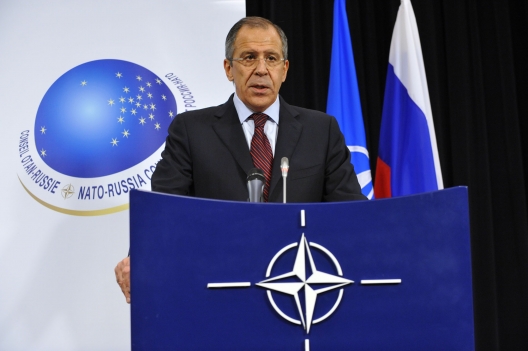 NATO was and is a leading military organization in the European-Atlantic region – that is why, while developing cooperation with it in spheres of common interest, Russia paid special attention to ensuring appropriate defense levels amid any scenarios, Russia’s Permanent Representative to NATO Alexander Grushko told Interfax.
NATO was and is a leading military organization in the European-Atlantic region – that is why, while developing cooperation with it in spheres of common interest, Russia paid special attention to ensuring appropriate defense levels amid any scenarios, Russia’s Permanent Representative to NATO Alexander Grushko told Interfax.
“It is known that in military affairs potentials, not intentions – which, as the latest events have shown, can change – and are taken into account. That is why if we see that new NATO arrangements regarding Russia are implemented in relevant actions of military construction and are manifested in shifting NATO’s military potential towards the ‘eastern wing,’ we will take measures necessary so that Russia’s security is not affected by this,” Grushko said in an interview ahead of a meeting of NATO defense ministers on June 3-4 and due to NATO-Russia Council meeting, first one since March 5.
“Having suspended cooperation with Russia, NATO inflicted damage firstly to international efforts to neutralize security risks and threats common for everyone, and thus, to its own security,” Grushko said.
Russia’s possible withdrawal from the Founding Act on its relations with NATO is just one of the options Moscow is considering as a reaction to NATO’s planned permanent deployment of large military forces in Central and Eastern Europe, Russia’s permanent envoy to NATO said on Monday.
“We’ll just see and study what the ministers decide,” Alexander Grushko told Interfax in reference to a planned meeting in Brussels on Tuesday and Wednesday of NATO defense ministers.
“But if it is additional deployment of substantial NATO combat forces in Central and Eastern Europe that is on the agenda – we can hear appeals to that effect, – such deployments, even if they are based on rotation, will hardly be qualifiable as a direct departure from commitments under fundamental Russia-NATO documents, including the Founding Act,” Grushko said. . . .
“All this can throw Europe back to the times of the Cold War and trigger an arms race. NATO should realize that, if it embarks on that path, it can hardly expect Russia to reciprocate with ‘restraint’ in deployments of forces, as the Founding Act stipulates. But that is not our choice,” the diplomat said. . . .
“I don’t think, however, that all members of the Alliance, for all of its belligerent rhetoric, are willing to become trapped in schemes dating back to the era of confrontation. If this happens security risks will only grow. Then again, they will hardly want to lose the ‘dividends of peace’. Defense will draw funding far exceeding the current 1%-2% of GDP,” the Russian diplomat said.
Image: Russian Foreign Minister Sergey Lavrov after meeting of NATO-Russia Council, December 4, 2009 (photo: NATO)
